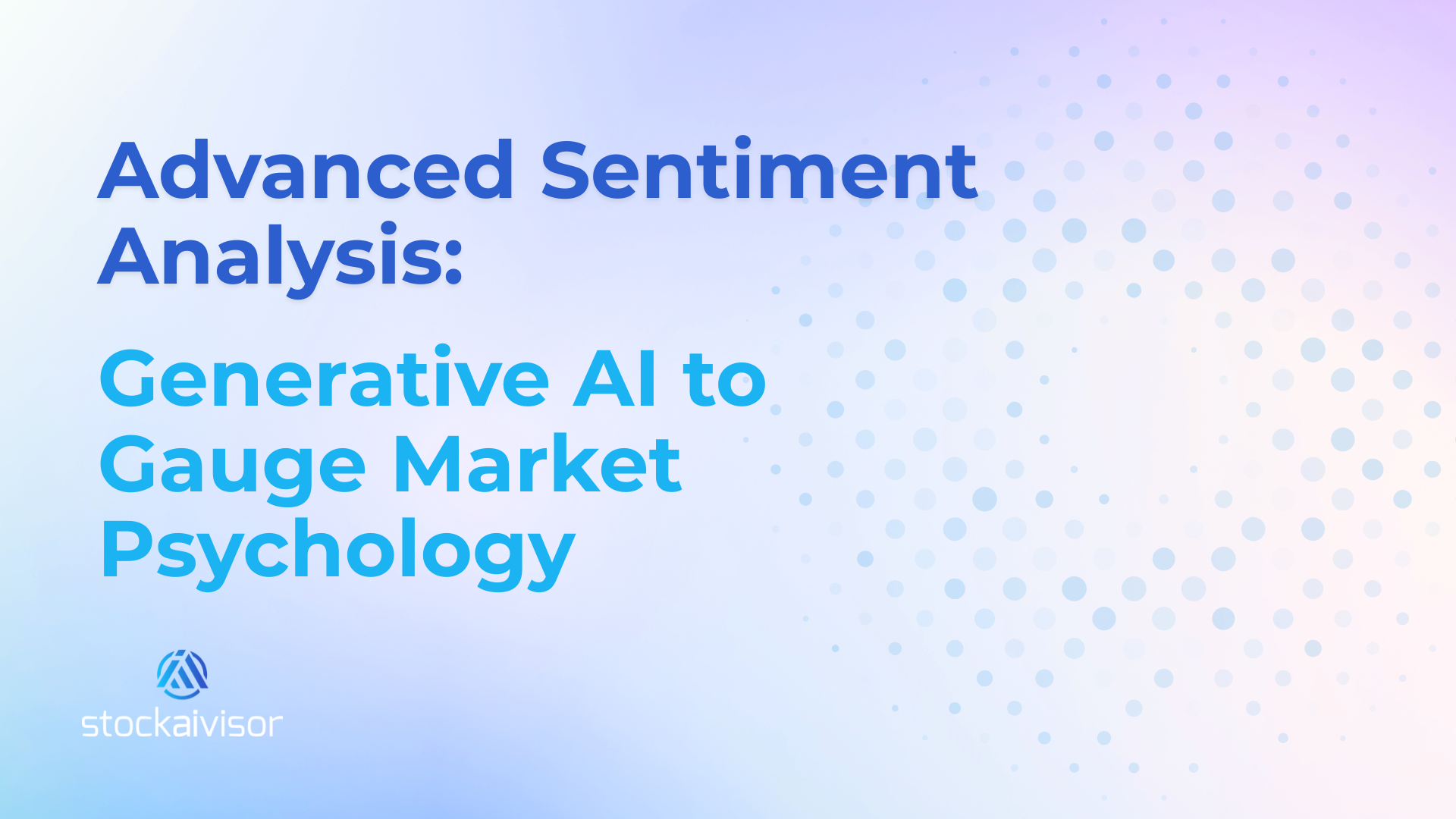
Advanced Sentiment Analysis: Leveraging Generative AI to Gauge Market Psychology
Understanding market sentiment—how investors collectively feel about the markets or specific stocks—is crucial. Traditionally, sentiment analysis involved scanning news articles or surveys manually. Today, generative AI technologies like GPT-4 and BloombergGPT have revolutionized this approach, providing deeper, faster insights into market psychology.
Why Sentiment Matters in Investing
Sentiment drives short-term market movements and influences volatility. Positive sentiment often leads to rising prices, while negative emotions can trigger sell-offs. A study published in the Journal of Finance found sentiment shifts significantly impact stock returns, especially during periods of uncertainty and heightened market stress¹.
Generative AI: Going Beyond Keyword Analysis
Traditional sentiment analysis relies on keyword searches, such as "bullish" or "bearish," often missing nuanced language and context. Generative AI models, trained on vast financial datasets, capture subtleties and hidden implications within financial news, social media chatter, and earnings calls.
BloombergGPT, a specialized generative AI trained explicitly on financial text, illustrates this power by analyzing unstructured market data in real-time². Such models interpret complex statements from CEOs or subtle language changes in financial reports, offering precise sentiment scores immediately actionable for traders and investors.
Real-world Examples: AI Sentiment Analysis Platforms
Tools like Stockaivisor integrate advanced sentiment analytics directly into investment decisions. These platforms aggregate diverse sources—social media feeds, news, SEC filings—and instantly analyze sentiment trends. According to recent research in Financial Innovation, such integrated AI tools outperformed traditional sentiment analytics by predicting price movements with higher accuracy³.
Strengths and Limitations of AI Sentiment Analysis
Strengths:
- Speed and Scalability: Instantly analyzes vast data volumes.
- Precision: Captures nuances in language overlooked by traditional methods.
- Real-time Insights: Quickly identifies sentiment shifts before markets respond.
Limitations:
- Data Quality Dependence: AI is sensitive to inaccurate or manipulated inputs.
- Contextual Errors: Sarcasm, irony, or cultural nuances may confuse models.
- Overreaction Risk: Sentiment alone may lead to overly reactive decisions without fundamental backing.
A Hybrid Future: Human Judgment Meets AI Insight
Generative AI-driven sentiment analysis doesn't eliminate human insight—it amplifies it. Investors leveraging AI tools alongside fundamental and technical analysis gain more robust perspectives. As sentiment analysis evolves, successful investors will blend AI-driven insights with human judgment to better navigate emotional market swings.
References:
¹ Baker, M., & Wurgler, J. (2007). Investor Sentiment in the Stock Market. Journal of Finance.
² Wu, S., et al. (2023). BloombergGPT: A Large Language Model for Finance. Bloomberg.
³ Huang, W., & Chen, Y. (2022). Predicting Stock Market Movements with Sentiment Analysis Using Deep Learning Techniques. Financial Innovation.
